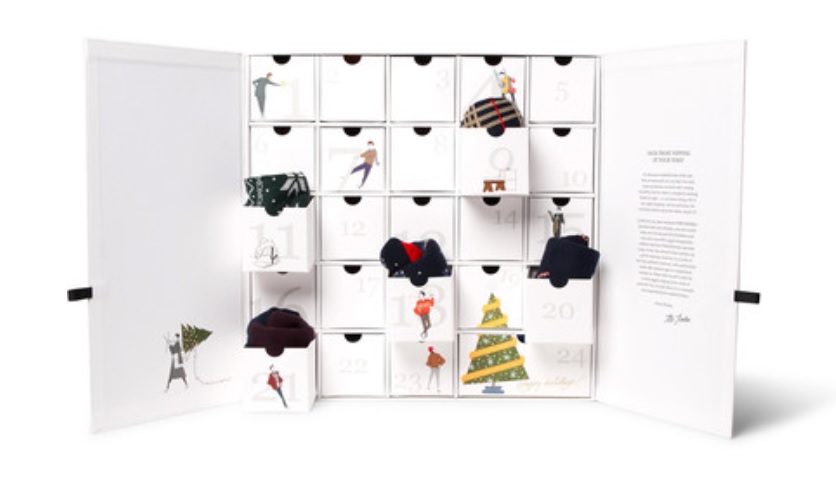Do you remember those childhood December days when an Advent calendar involved opening 24 cardboard windows which gradually revealed a nativity scene behind the frame? At a certain point, the suspense of counting down the days till Christmas was eased with the introduction of little chocolate treats behind each window. That was, it turns out, the top of a very slippery slope, and now these devices, once designed to enhance anticipation of the Feast of the Nativity, have themselves become instruments of undelayed gratification, with some containing hundreds of dollars’ worth of luxury items ranging from beauty products to whisky.
The Telegraph quotes the Revd Dr Ian Paul, of the Church of England Archbishops Council, who finds the novelties “deeply ironic.”
He said: “Christians use Advent as a time to remember two things. The first is Jesus’s own coming to us in poverty from the riches of his glory at the Father’s right hand. The second is God’s promised future coming in judgement – when he will hold all people to account for their greed and selfishness. So it is doubly ironic that people are using Advent to celebrate greed and wealth.
“The adaption of religious symbols for such secular ends appears to demonstrate the absolute power of consumerism. It appears that there is no limit to the ideas that can be trampled on and colonised.”
The Guardian, however, wonders whether the trend is perhaps an essential part of the modern keeping of Christmas.
If you think the trend for luxury calendars is yet another sign of the hideous mass commercialism of Christmas, you will be joining a tradition that goes back to the Victorian period. “Christmas has got more commercial and has become a consumerist event, but that’s because the whole of society has,” says Martin Johnes, reader in history at Swansea University and author of Christmas and the British: A Modern History. “It’s a reflection on how our wider society has changed, rather than how the festival itself has changed.”
Christmas was always a time of excess, and from the late-Victorian period, people were encouraged to shop. “Spending money on yourself and on other people has been a common trend since then and that’s always led to complaints about how the meaning of Christmas has been lost,” says Johnes. “People have felt uncomfortable with the idea of shopping and seeing Christmas as something money could be made out of, but Christmas wouldn’t have become the big festival it did without that commercial driver.” So really, as you are crunching your 24th bag of pork scratchings, or lighting a miniature Diptyque candle, or you have done nearly three weeks’ straight with a daily gin miniature, you should be thanked for keeping Christmas alive.
What part does a countdown calendar play in your Advent observance?
Featured image: luxury Advent calendar featuring a pair of socks per day

